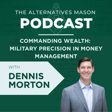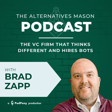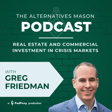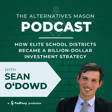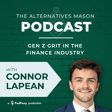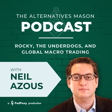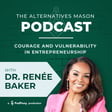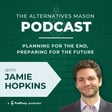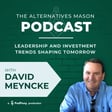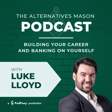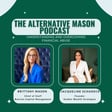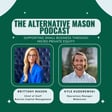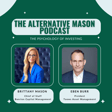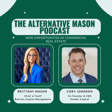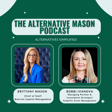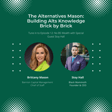
The Alternatives Mason: Building Alts Knowledge Brick by Brick | Episode 9 | Return Stacking Featuring Corey Hoffstein
Welcome to The Alternatives Mason: Building Alts Knowledge Brick by Brick. Banrion Capital Management uses technology to help independent advisors scale and educate themselves on alternative investments. Since education is such a big piece of the Banrion mission and business, we are excited to kick off this series to dive into the nits and grits of the alternatives space. Episode 9 "Return Stacking" Features Corey Hoffstein, co-founder of and Chief Investment Officer at Newfound Research. Founded in 2008, Newfound Research LLC is a quantitative investment and research firm dedicated to helping investors pro-actively navigate the risks of investing by unlocking the benefits of diversification through Return Stacking™. The firm manages a variety of alternative strategies and capital efficient solutions that allow investors to implement Return Stacking™ concepts. At Newfound, Corey oversees quantitative research and overall corporate strategy.
In addition to his role at Newfound, Corey is passionate about research, his work on liquidity cascades & rebalance timing luck has been published in industry journals. He is a highly sought after industry speaker, media contributor and the host of the "Flirting with Models" Podcast.
Corey holds a B.S. in Computer Science from Cornell University and an M.S. in Computational Finance from Carnegie Mellon University.
Connect With Corey HoffsteinLearn More About Banrion: Banrion Capital Management
Follow Brittany on 𝕏: @Brittany_Mason
Follow Banrion on 𝕏: @Banrion_Capital
Subscribe to our YouTube Channel: @QueenofAlts
Important Disclosures:
The opinions expressed on the “The Alternative Mason Podcast” are for general informational purposes only and are not intended to provide specific advice or recommendations for any individual or on any specific security.
It is only intended to provide education about the financial industry. To determine which investments may be appropriate for you, consult your financial advisor prior to investing. Any past performance discussed during this program is no guarantee of future results.
The guests featured on this program may be participants on Banrion Capital Management’s platform. As such Banrion may receive payment for their participation as a platform partner.
Any indices referenced for comparison are unmanaged and cannot be invested into directly. As always please remember investing involves risk and possible loss of principal capital; please seek advice from a licensed professional.
Investments are not FDIC-insured, nor are they deposits of or guaranteed by a bank or any other entity, so they may lose value.
Investors should carefully consider investment objectives, risks, charges and expenses. This and other important information is contained in the fund prospectuses and summary prospectuses, which can be obtained from a financial professional and should be read carefully before investing.
